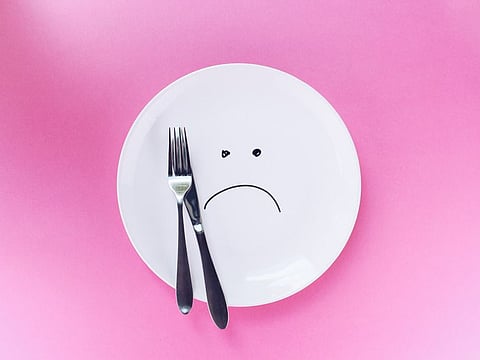Breaking the stigma of eating disorders for men
Boys and men should be included in campaigns around healthy eating and eating disorders

Also In This Package
When thinking of eating disorders, many will likely picture a woman. However, the statistics prove to be different. Research from the UK found that men make up 25% of those who live with eating disorders, and less than 10% go on to seek professional help.
Yet the conversation around eating disorders primarily focuses on women with scant awareness of its impact on men. It is imperative we include men in the messaging and discourse to do away with the stigma and misinformation around such conditions.
Some celebrities have come out with their varied experiences in relation to the topic, prompting conversation. Singer Ed Sheeran has spoken publicly about his tumultuous relationship with food wherein he binge ate until he threw up and struggled with his body image.
Lack of media portrayal
Also, actor Christopher Eccleston has said he is a “lifelong anorexic” and was hesitant to speak up about the issue because, in his words, he “always thought of it as a filthy secret… because I’m male and because I’m working class”. Unfortunately the fewer people speaking out and the lack of media portrayal has enabled silence around the issue.
Societal expectations and the narrative set around toxic masculinity can prevent men from speaking out about their experiences. Like with other mental health conditions, men often hold back from seeking support in large part due to the stigma surrounding them being vulnerable.
The depiction of eating disorders in media and pop culture is unfortunately limited and usually portrays a woman. While this is absolutely the tragic reality of some womens’ lives, eating disorders are much more complex than that.
While media portrayal and coverage of men facing eating disorders is limited, the younger generation is taking to social media platforms such as Instagram and TikTok to speak out. They’re raising awareness and sharing their lived experiences in the hopes to change the narrative.
Outdated and archaic standards
For long, men have been expected to be stoic, well-built and in control but when a man doesn’t meet these outdated and archaic standards, society mocks them for not being masculine enough or throws around slurs to invalidate their feelings and experiences.
With this narrative of pseudo-masculinity, we also want men to be emotionally available and sensitive. In such situations, it is important to remember that toxic masculinity doesn’t just impact women.
People in general, must be mindful of their language and their internalised notions of masculinity which can further exacerbate mental health conditions in men. Boys and men should be included in the campaigns around healthy eating and eating disorders in schools and workplaces to normalise the conversations around male mental health.
As a society, we need to work towards destigmatising mental health and eating disorders in both men and women whereby they are encouraged to seek out the help they need without fear of being ostracized or ridiculed.
Aakanksha Tangri is the founder of Re:Set, an online resource of tools and stories around education, parenting, gender, inclusivity, mental health and well-being








